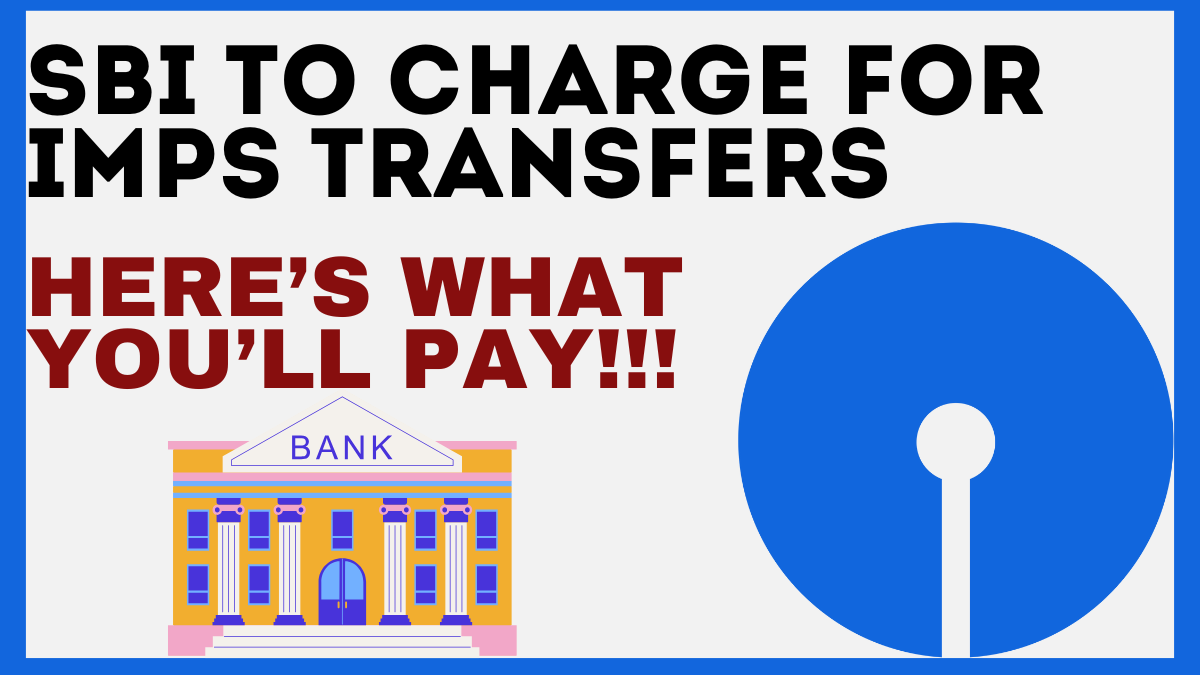The State Bank of India (SBI) has announced a significant update to its digital banking services—Immediate Payment Service (IMPS) transfers will no longer remain free. Starting September 15, 2025, customers will need to pay charges for IMPS transactions, a move that impacts millions of retail and corporate account holders.
This policy change aligns SBI with other leading banks that already levy nominal fees for IMPS transactions. While the bank earlier allowed free IMPS transfers, the new structure introduces transaction-based charges.

What is IMPS?
Immediate Payment Service (IMPS) is one of the most widely used real-time money transfer systems in India. It allows customers to send money instantly:
-
Available 24/7 including Sundays and bank holidays.
-
Works through mobile apps, net banking, and ATMs.
-
Supports fund transfers using account number/IFSC or mobile number/MMID.
With its speed and accessibility, IMPS is popular among users for transferring amounts up to ₹5 lakh.
Why is SBI Introducing Charges?
The decision to impose fees from September 15, 2025, is driven by several factors:
-
To bring uniformity with other banks charging IMPS fees.
-
To cover infrastructure and security costs of maintaining instant transfers.
-
To encourage the use of UPI and NEFT for small-value transfers.
SBI clarified that the charges are nominal and structured to minimize the impact on small-value transactions.
SBI IMPS Charges from September 15, 2025
The revised charges are as follows (exclusive of GST):
-
Up to ₹1,000: ₹2.50 per transaction
-
₹1,001 – ₹10,000: ₹5 per transaction
-
₹10,001 – ₹1,00,000: ₹10 per transaction
-
Above ₹1,00,000 up to ₹5,00,000: ₹15 per transaction
GST will be added as applicable.
Free Transactions Ending
Until September 14, 2025, all IMPS transfers on SBI’s platforms remain free. Post this date, the new charges will apply automatically.
How This Affects SBI Customers
For frequent digital banking users, the change will mean:
-
Increased cost for multiple daily transactions.
-
A possible shift towards UPI for small-value transfers (still free).
-
Businesses and retailers using IMPS heavily may see higher transaction costs.
However, IMPS continues to be valuable for instant high-value transfers, especially when NEFT is unavailable.
Alternatives to IMPS
SBI customers can still use other low-cost or free options for fund transfers:
-
UPI: Free for small transactions, widely accepted.
-
NEFT: Free through internet banking and mobile apps, but not instant.
-
RTGS: Free for transfers above ₹2 lakh, processed in real-time during banking hours.
Choosing the right mode can help minimize extra charges.
Steps to Make an IMPS Transfer in 2025
-
Log in to SBI’s YONO app or internet banking.
-
Select IMPS transfer option.
-
Enter beneficiary details (account/IFSC or mobile/MMID).
-
Enter the transfer amount.
-
Confirm with OTP/MPIN.
-
Transaction completes instantly with a reference number.
Key Takeaways
The SBI IMPS Charges Update 2025 marks the end of free IMPS transactions from September 15, 2025. Customers will now need to pay ₹2.50 to ₹15 per transaction depending on the amount. While this adds a small cost, IMPS remains one of the most reliable real-time transfer methods in India.
For small transactions, users can switch to UPI or NEFT to avoid charges, while IMPS will remain crucial for larger instant transfers.
FAQs
When will SBI start charging for IMPS transfers?
From September 15, 2025, IMPS transactions will no longer be free.
What are the new IMPS charges at SBI?
₹2.50 to ₹15 per transaction (excluding GST), depending on the amount transferred.
Are IMPS transfers still available 24/7?
Yes, IMPS continues to operate round the clock, including weekends and holidays.
Which transactions remain free at SBI?
UPI, NEFT, and RTGS transactions remain free of charge in 2025.
How can I avoid paying IMPS charges?
For small-value transfers, use UPI or NEFT instead of IMPS to save fees.
Click here to know more.
